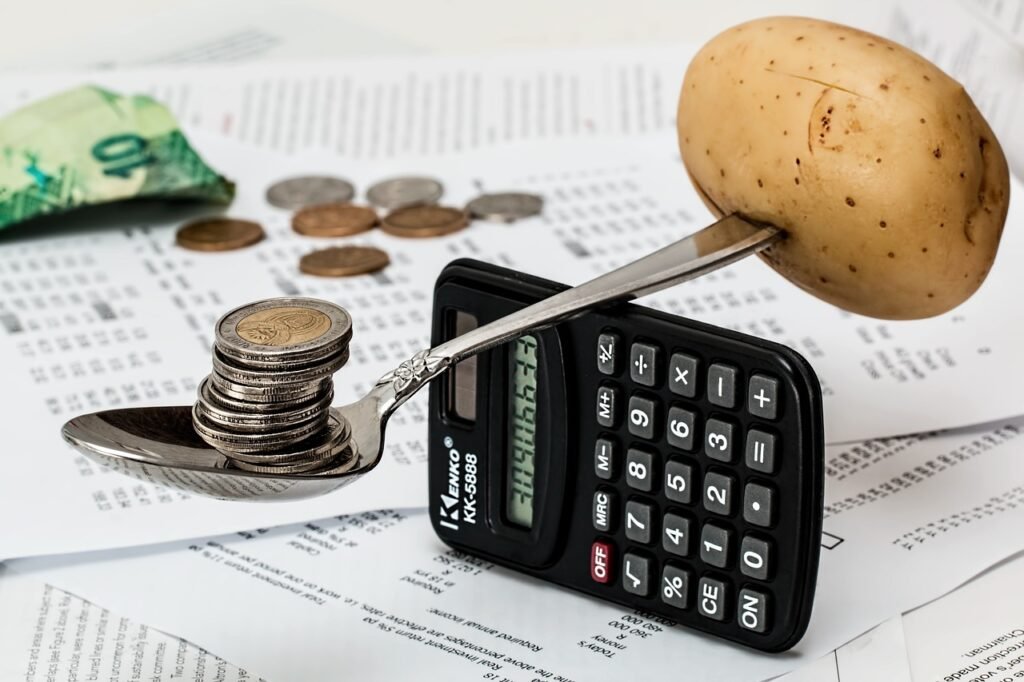
Where Does Your Money Come From?
Managing finances in a marriage can be a complex task. It’s crucial to begin by obtaining a clear understanding of your financial situation. Start by identifying all your sources of income, whether it’s your salary, investments, or any other form of earnings. Keeping track of these income sources is essential as it forms the foundation for effective financial management. You can use practical tools like a notebook or user-friendly apps like Dynalist, Workflowy, Todoist, Anydo, and more to list down all your income streams. Don’t hesitate to list them all, as this information is vital for making informed decisions about your money.
How Can You Keep Track of Your Spending?
Next, we move on to keeping a record of your expenses, a fundamental step for any couple or family. Maintaining a detailed record of your expenditures allows you to track your spending habits and discover areas where you can cut back or save money. This record provides clarity on where your money is going and enables you to make informed decisions about your finances. Moreover, discussing your expenditures as a couple or family encourages open communication and shared financial responsibility. This practice ultimately contributes to a healthier and more organised financial life for both you and your family.
Now, let’s acknowledge that forming the habit of keeping this financial record may not be simple, but it can be mastered over time with consistent effort and dedication. It requires discipline to regularly update your expenses and review them. However, the long-term benefits far outweigh the initial challenges. Staying committed to tracking your spending provides a better understanding of your financial habits and allows for necessary adjustments to secure your financial future.
What If Expense Tracking Gets Tough?
To make this process more accessible, consider using apps like Mint, YNAB (You Need a Budget), or PocketGuard. These apps link to your bank accounts and credit cards, automatically categorize your expenses, and offer insightful budgeting tools. Their convenience makes tracking expenses less time-consuming and more efficient, helping you stay dedicated to your financial goals. These apps often include features like bill reminders and goal-setting options, further assisting you in managing your finances effectively.
What Are Your Financial Goals?
As you continue your financial journey as a couple, it’s essential to determine your financial objectives. Reflect on what you want to achieve in the short term, such as building an emergency fund or paying off debts. Plan for mid-term goals like home improvements or investing in your education. Finally, envision your long-term financial future, whether it’s enjoying a comfortable retirement or making profitable investments.
How Can You Keep Improving Your Budget?
Creating your first budget is an essential step towards financial stability. Base your budget on your current income, ensuring that your expenses align with what you can afford. Regularly review and adjust your budget as your financial situation changes. Allocate specific amounts to different categories and avoid overspending. Consider setting aside savings or emergency funds for future financial security.
It’s important to recognise that, initially, budgeting might not go perfectly. You may struggle to stick to your plan, and that’s okay. Embrace the opportunity to analyse where you went off track and make the necessary adjustments. By learning from your mistakes and continuously improving your budgeting skills, you will eventually gain control over your expenses and achieve financial stability.
Why Should You Divide Your Money into “Pots”?
Lastly, imagine your money as different pots, each with a specific purpose. The “Bills Pot” covers essential fixed expenses like rent or mortgage, bills, and insurance, which must be paid every month. The “Savings Pot” is your future fund, where you save for short-term and long-term goals. And then there’s the “Fun Stuff Pot,” allowing you to enjoy life’s pleasures with discretionary spending on things like dining out and activities. This approach gives each dollar a clear role, making budgeting less daunting and more enjoyable.
Remember, once you allocate money to these pots, try not to take it out until the budget period is over. This discipline helps you truly feel the impact of not having money for certain things, promoting better money management. It’s like a financial discipline game that can make your financial life smoother.
In conclusion, effective financial management begins with understanding your financial details, tracking your income and expenses, setting goals, and creating a budget. Embracing these practises, while acknowledging the initial challenges, will ultimately lead to financial security and peace of mind for both you and your family.

6 thoughts on “Make a home budget that makes you happy”
Very interesting topic, thanks for posting.Money from blog
Can you be more specific about the content of your article? After reading it, I still have some doubts. Hope you can help me.
You rocked this subject and have astounding insights. I also work hard in putting together great content about Thai-Massage, feel free to visit UY6
I don’t think the title of your article matches the content lol. Just kidding, mainly because I had some doubts after reading the article.
Your point of view caught my eye and was very interesting. Thanks. I have a question for you.
I don’t think the title of your article matches the content lol. Just kidding, mainly because I had some doubts after reading the article.